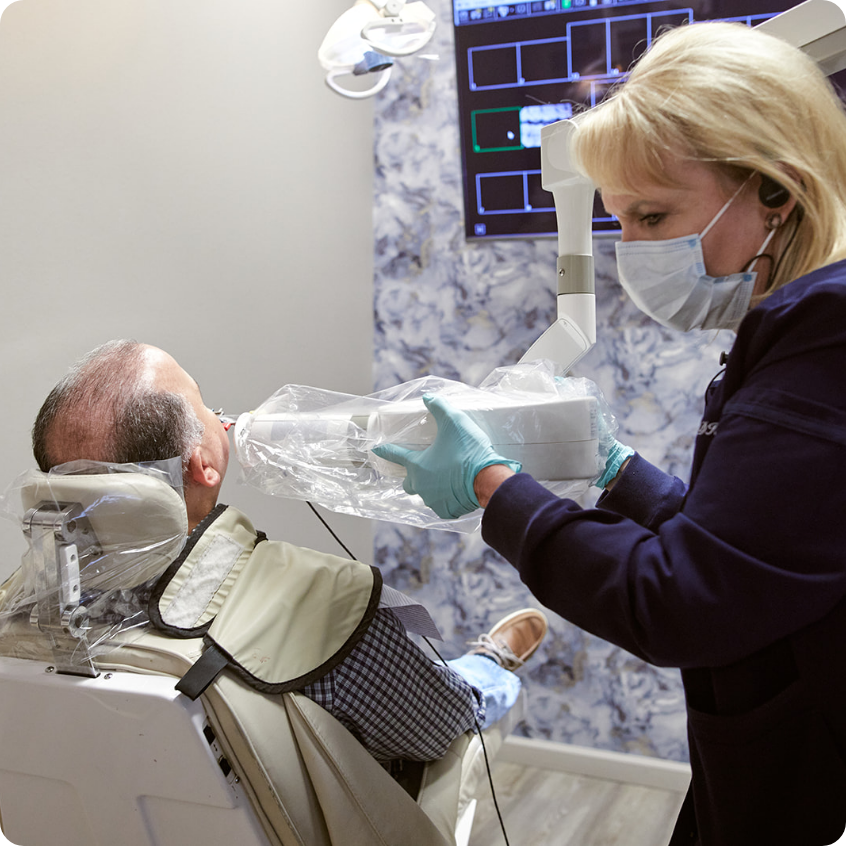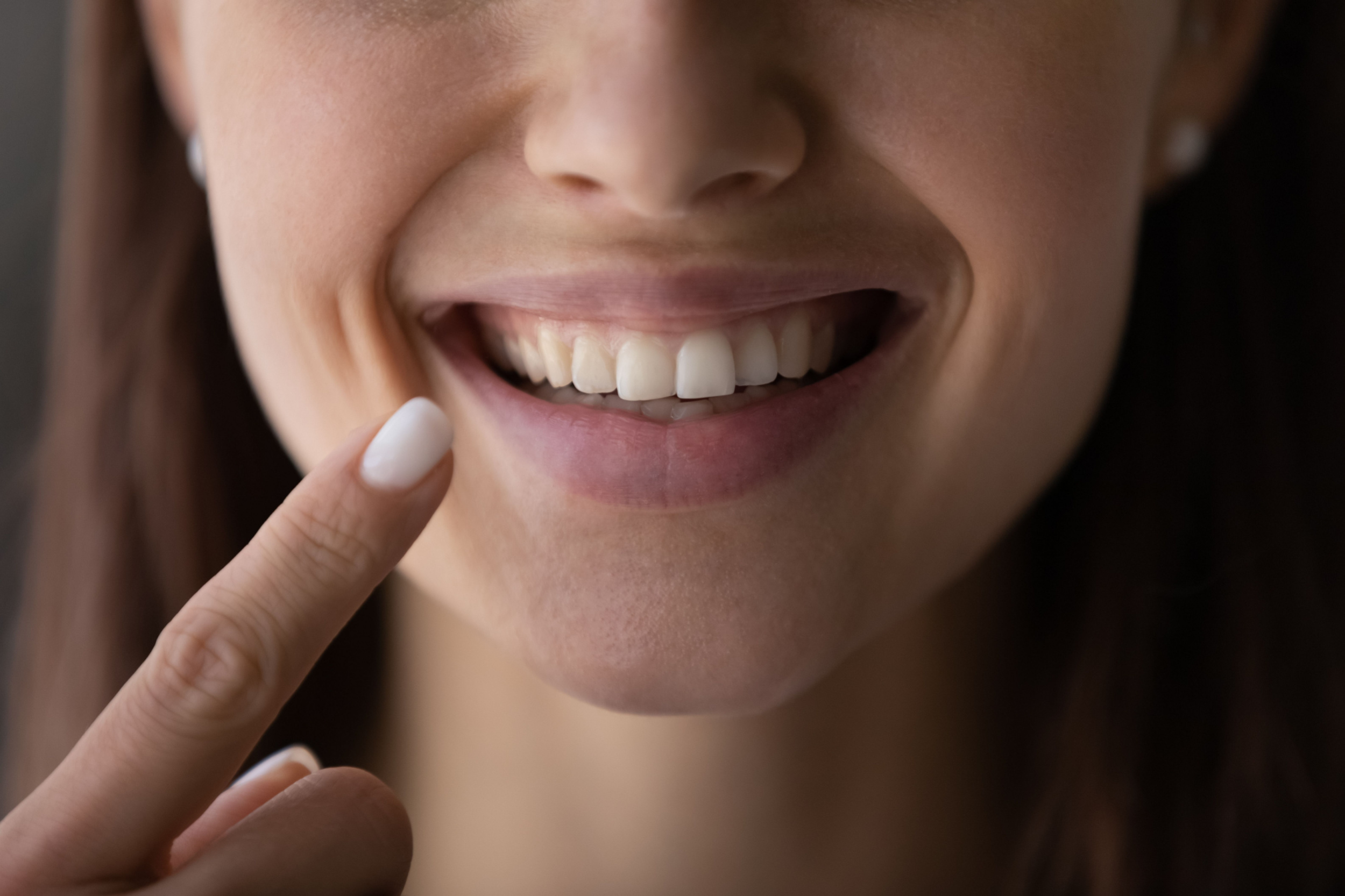Emergency Dentistry in Plano
Prompt, Compassionate Care When You Need It Most
Dental pain doesn’t follow a schedule—and when it hits, waiting days for an appointment just isn’t realistic. That’s why we offer emergency dental services right here in Plano. Our team is ready to act fast, using experience, technology, and a calm, caring approach to help you through unexpected dental problems.
We use advanced 3D cone beam imaging to get a clear view of what’s going on, especially when an infection may be the cause. From the moment you call, we focus on getting you relief as quickly as possible.
What to Do in a Dental Emergency in Plano
Whether it’s a knocked-out tooth or a crown that just popped off, here’s how to handle it:
Call us right away: We’ll work to get you in that same day. If needed, we’ll also guide you through any immediate care or pain management at home.
Come in for an urgent exam: Once you arrive, we’ll make sure you’re as comfortable as possible and perform a full evaluation—often with X-rays—to identify the issue.
Understand your options: After diagnosing the problem, we’ll walk you through your treatment plan so you know exactly what’s happening and why.
Get the care you need: When you’re ready, we’ll start treatment right away to stabilize your situation and get you back to feeling better. If you’re nervous, we may suggest sedation to help you stay calm and relaxed.
Common Dental Emergencies We Treat
If you’re in pain, have a dental injury, or something just doesn’t feel right—call us. Not all emergencies are easy to identify, but we’re here to help you figure it out.
Here are some of the more frequent issues we see:
Toothaches
Sensitivity to Hot & Cold
Chipped or Broken Tooth
Knocked-Out Tooth
Cracks or Fractures
Broken Dentures
Injuries to the Lips, Gums, or Tongue
Lost Fillings or Crowns
Loose Permanent Teeth
Jaw Pain or Clenching
Something Stuck Between Teeth
What Emergency Dental Care Costs
Emergency visits vary widely in cost depending on the issue and what treatment is needed. After your exam, we’ll go over all costs with you before proceeding. The earlier you address the problem, the less extensive—and less expensive—it’s likely to be.
Some issues can be resolved with minor treatment, like a filling. Others might require a crown, root canal, or even tooth replacement. Whatever the situation, we’ll explain your options clearly so you can make informed decisions.
No Two Dental Emergencies Are Alike
Emergency dental care in Plano can vary in cost depending on your specific situation. Once you’re here, we’ll examine your teeth and gums to determine what’s going on and what kind of treatment is needed. Sometimes, a simple fix—like a filling or medicated rinse—is all it takes. Other times, the solution might involve something more advanced, such as a root canal, crown, or even an extraction followed by a replacement option.
If there’s more than one path forward, we’ll talk through your options in detail—including what each one involves and how much it may cost—so you can make the decision that’s best for you.


Will Insurance Help Cover Emergency Dental Care?
Most dental insurance plans include coverage for emergency visits, and many offer one emergency exam per year. Depending on the procedure, your plan might cover 40% to 80% of treatment costs. We’re happy to work with most major PPO providers and will handle claim filing for you to help maximize your benefits.
Making Care Affordable Without Insurance
No insurance? Or facing a cost that isn’t fully covered? We also offer CareCredit® financing. This lets you break up treatment costs into monthly payments—with little or no interest for many plans. You can even use it for cosmetic repairs, like a veneer to fix a chipped tooth.


Preventing Dental Emergencies in the First Place
Accidents happen—but many dental emergencies can be avoided with a few simple habits:
- Keep up with regular cleanings and exams
- Brush and floss daily
- Eat a tooth-friendly diet (less sugar, fewer acidic foods)
- Use a nightguard if you clench or grind
- Never use your teeth as tools (seriously—don’t open bottles with them)
Dental insurance typically covers preventive visits in full, so don’t skip them. Catching small problems early keeps them from becoming big, painful ones later.
Keys to Preventing Dental Emergencies
Not all dental emergencies are avoidable, but there are steps you can take to greatly reduce your risk. While this definitely includes routine checkups with our team, it’s far from the only way to prevent dental emergencies in Frisco. We invite you to take a moment to read through these five simple precautions that will minimize the risk of sudden harm to your smile.
Emergency Dentistry FAQ
When something unexpected happens, it’s normal to feel overwhelmed. That’s why we’ve compiled answers to some of the most common questions patients ask about dental emergencies. Our Plano team is here to walk you through what to do and how to get relief—no matter the situation.
How Do I Treat a Toothache At Home?

- Add ½ teaspoon of salt into a glass of warm water and rinse it around your mouth to reduce inflammation.
- Take an over-the-counter pain reliever like Ibuprofen as directed on the packaging.
- Place a cold compress on the outside of your face for 10-minute intervals.
- Place a slightly warmed peppermint tea bag on the affected area to numb pain and soothe sensitive gums.
When Should I Visit the ER for a Dental Emergency?

- Broken or fractured jaw
- Difficulty breathing or swallowing
- Bleeding that won’t stop
Are Sensitive Teeth a Dental Emergency?

Extreme tooth sensitivity can be a sign of several issues, including an infection or receding gums. Both of these are serious concerns that should be dealt with immediately by your emergency dentist in Frisco. If you’re experiencing persistent sensitivity, schedule an appointment. If you believe that your sensitivity could be caused by worn-down enamel, try using sensitive toothpaste. Either way, be sure to contact our dental office for first-aid advice and to determine whether your situation should be handled with urgency.
I’m Scared of the Dentist. Can They Put Me to Sleep During My Emergency Visit?

You’ll want to start by calling our practice to get an appointment scheduled. When you do, a team member can get your visit set up and provide guidance on managing your symptoms. We’ll work hard to get you scheduled to visit the same-day you call. Most hospital ER’s are not equipped to handle dental emergencies, which is why it’s best to call our office directly in most cases instead. However, life-threatening emergencies should trigger a call to 911 immediately. Keep in mind that dental emergencies are typically an indication of a larger problem that needs addressing. Always stay on top of routine checkups so our team has an opportunity to catch problems early.
